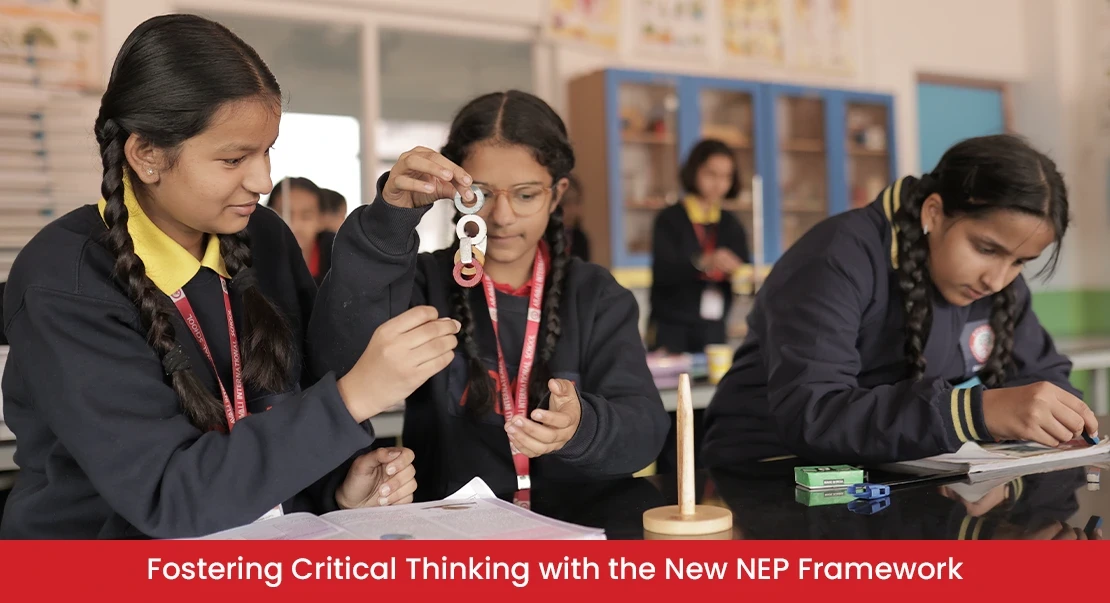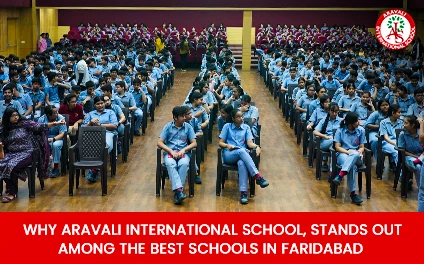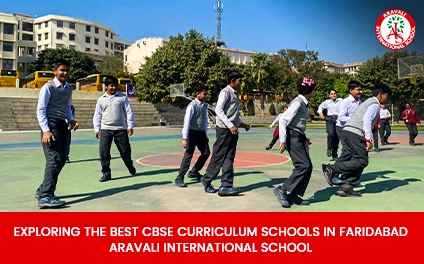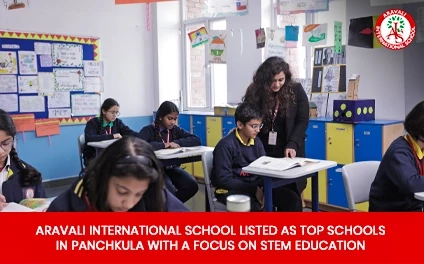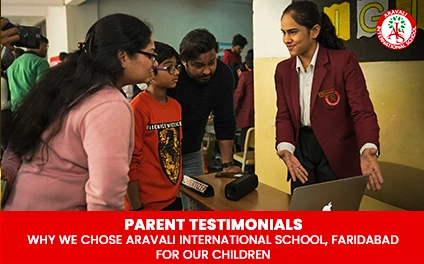In modern education, the skills that students need to be successful have changed significantly. Textbook-based learning and rote memorisation are no longer adequate. Conscious of this change, NEP 2020 implementation in schools has a definitive focus on developing critical thinking in education. On this basis, learners and parents are gradually turning to institutions that embrace such progressive tenets. And, the best school in Panchkula to turn to is Aravali International School. This school is one of the top-rated schools in Panchkula, not only meeting the requirements of the NEP but also following the philosophical structure of the NEP, making a generation of individuals who are creative, rational, and flexible.
In the Aravali International School, Panchkula, true learning is not merely about academic grades, but about enabling students to become critical thinkers, who question, analyse and innovate. The current blog thus explains the commitment of the NEP 2020 implementation in schools with regard to critical thinking and how the institution is bringing these revolutionary concepts to life.
What is Critical Thinking and Why NEP Prioritises It?
Critical thinking in education is the ability to analyse information critically and make reasoned conclusions. This skill entails challenging presumed assumptions, weighing pieces of evidence, and acknowledging biases prior to drawing conclusions. The best school in Panchkula, namely, Aravali, recognises critical thinking as one of the key elements of a holistic education in the twenty-first century.
The new framework rejects the conventional teacher-centred approach in favour of a student-centred one. The policy aims at streamlining the curriculum to its minimum content in order to increase the possibilities of dialogue, project-based learning, and experiential learning. The aim is to move beyond what to think to how to think, a shift that lies at the heart of substantive adoption of the NEP 2020 and that is key to equipping students to live in a world that values adaptability and creativity.
The Aravali International School has taken an active approach toward achieving the goals of the National Education Policy (NEP) 2020, as it is one of the leading CBSE schools in Panchkula. It deliberately models its methodological approach on the main principles of the policy. The following shows how critical thinking is encouraged in the institution:
1. Experiential and Project-Based Learning
Article 4 of the NEP supports the idea of learning through doing, and the Aravali curriculum reflects it in its large-scale experiential and project-based initiatives. Instead of simply reading textbooks, students explore scientific ideas in sophisticated laboratories, and historical events are analysed by role-playing and by debating to draw out a variety of opinions. This type of activity-focused instruction allows learners to combine theoretical knowledge with practice, which can develop critical thinking ability.
2. Inquiry-Based Education
The role of Aravali teachers, recognised as the best school in Panchkula, is that of a facilitator, allowing students to take charge of creating their own questions and answers. This question-centred method fosters intellectual and learning independence. In the robotics club or during literary discussions, all students are encouraged to question, explore, and make sound judgments, highlighting the school's philosophical dedication towards deep learning.
3. Interdisciplinary/ Holistic Learning
The subject silos that the NEP seeks to dismantle are reflected in the adoption of interdisciplinary and holistic pedagogies by Aravali. Clubs and extracurricular activities are also on the crossroads of the disciplinary realms: the debate club, in particular, fosters oral communication and guides students to study complicated issues in science, politics, and the arts. This kind of integration promotes cross-disciplinary synthesis of ideas that strengthens the position of the institution as one of the best CBSE schools in Panchkula.
4. Reform of Transformative Assessment
The NEP in Article 14 states that all rote-learning-based examinations should be replaced by continuous assessment and comprehensive evaluation. Aravali International School has adopted this requirement by using evaluative processes that measure conceptual knowledge, analytical skills and creativity via projects, portfolios, and presentations. Such instruments enable students to show learning in various and significant forms, hence making evaluation processes effective in measuring critical-thinking abilities.
The Aravali Impact: Empowering Progress Beyond the NEP
While the NEP provides the framework, it is the unique environment and resources at Aravali International School that make the implementation truly successful. Our dedicated and highly-trained faculty are the pillars of this change. They are not just teachers; they are mentors who are passionate about nurturing each child's potential.
Our campus, with its sprawling grounds and modern facilities, provides the ideal backdrop for this new era of education. From our well-equipped science and computer labs to our creative arts studios and sports complexes, every space is designed to support a holistic and stimulating learning experience. This commitment to all-around development is what sets us apart and makes us one of the best schools in Panchkula for parents who want a well-rounded education for their child.
By combining the transformative vision of the NEP 2020 with our proven expertise in education, Aravali International School is preparing students for more than just a successful career; we are preparing them for a successful life. We believe that by fostering critical thinking in education, we are equipping our students with the skills they need to navigate an uncertain future with confidence, curiosity, and creativity.
Join us at Aravali International School, Panchkula, and become a part of this educational revolution. We are more than a school; we are a community dedicated to building a brighter future, one thoughtful student at a time.
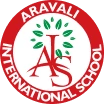


 14 August ,2025
14 August ,2025 Depreet Singh
Depreet Singh 